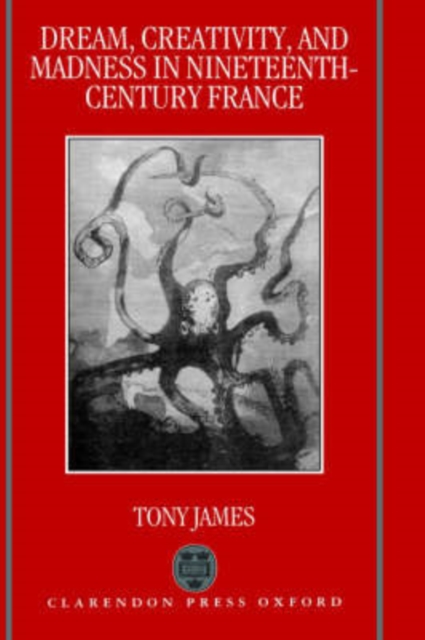
Dream, Creativity, and Madness in Nineteenth-Century France Hardback
by Tony (former Senior Lecturer in French, former Senior Lecturer in French, University of Manch James
Hardback
Description
This is an important new analysis of the problematic relationship between dreams and madness as perceived by nineteenth-century French writers, thinkers, and doctors. Those wishing to know the nature of madness, wrote Voltaire, should observe their dreams.
The relationship between the dream-state and madness is a key theme of nineteenth-century European, and specifically French, thought.
The meaning of dreams and associated phenomena such as somnambulism, ecstasy, and hallucinations (including those induced by hashish) preoccupied writers, philosophers, and psychiatrists.
In this path-breaking cross-disciplinary study, Tony James shows how doctors (such as Esquirol, Lélut, and Janet), thinkers (including Maine de Biran and Taine), and writers (for example, Balzac, Nerval, Baudelaire, Victor Hugo, and Rimbaud) grappled in very different ways with the problems raised by the so-called 'phenomena of sleep'.
Were historical figures such as Socrates or Pascal in fact mad?
Might dream be a source of creativity, rather than a merely subsidiary, 'automatic' function?
What of lucid dreaming? By exploring these questions, Dreams, Madness, and Creativity in Nineteenth-Century France makes good a considerable gap in the history of pre-Freudian psychology and sheds new and fascinating light on the central French writers of the period.
Information
-
Out of stock
- Format:Hardback
- Pages:316 pages
- Publisher:Oxford University Press
- Publication Date:28/12/1995
- Category:
- ISBN:9780198151883
Information
-
Out of stock
- Format:Hardback
- Pages:316 pages
- Publisher:Oxford University Press
- Publication Date:28/12/1995
- Category:
- ISBN:9780198151883






